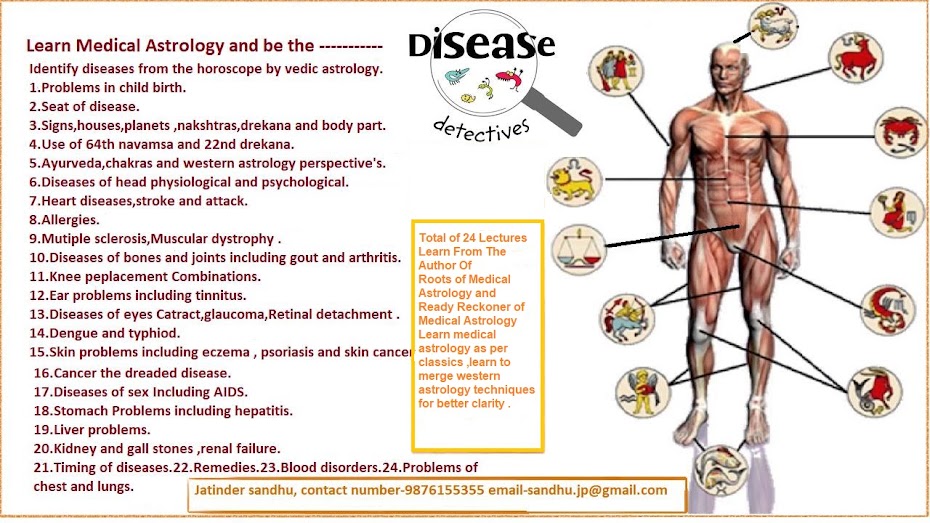Astrology of paralysis .
Paralysis in light of vedic astrology
Paralysis and the medical astrology
Image from----- http://www.huffingtonpost.com/entry/pain-price-and-a-prescription-for-cure_b_3240148.html?section=india
 https://www.nlm.nih.gov/medlineplus/paralysis.html
https://www.nlm.nih.gov/medlineplus/paralysis.html
Paralysis is the loss of muscle function in part of your body. It happens when something goes wrong with the way messages pass between your brain and muscles. Paralysis can be complete or partial. It can occur on one or both sides of your body. It can also occur in just one area, or it can be widespread. Paralysis of the lower half of your body, including both legs, is called paraplegia. Paralysis of the arms and legs is quadriplegia.
Most paralysis is due to strokes or injuries such as spinal cord injury or a broken neck. Other causes of paralysis include
- Nerve diseases such as amyotrophic lateral sclerosis
- Autoimmune diseases such as Guillain-Barre syndrome
- Bell's palsy, which affects muscles in the face
Polio used to be a cause of paralysis, but polio no longer occurs in most parts of world.
http://www.nhs.uk/conditions/paralysis/pages/causes.aspx
Causes of paralysis
The four most common causes of paralysis are stroke, head injury, spinal cord injury and multiple sclerosis.
Stroke
A stroke is a serious medical condition that occurs when the blood supply to your brain is disturbed.
Like all organs, the brain needs a constant supply of blood that contains oxygen and nutrients to function properly.
If the blood supply is restricted or stopped, brain cells will begin to die, which can lead to brain damage that often results in paralysis.
Head injury
A severe head injury can cause brain damage. The brain's surface can tear or bruise as it bumps against the skull, damaging blood vessels and nerves.
Paralysis can occur if a part of the brain that controls specific muscles is damaged during a severe head injury.
Damage to the left side of the brain can cause paralysis on the right side of the body, and damage to the right side of the brain can cause paralysis on the left side of the body.
Spinal cord injury
The spinal cord is part of your central nervous system. It is a thick bundle of nerves that runs from your brain, down through the neck and spine, inside a canal of vertebrae.
Its main function is to transmit signals to and from the brain and body. For example, the spinal cord passes nerve signals, such as hot or cold sensations, back to the brain.
If the neck or spine is injured, the spinal cord can also be damaged. This means the brain may no longer be able to transmit signals to the muscles, causing paralysis.
The exact location where the spinal injury occurs can have a significant effect on how severe and wide-ranging the paralysis is. The higher up the spine the injury occurs, the worse the paralysis will be. For example, an injury in the middle of the spine will usually cause paraplegia (paralysis of the lower limbs).
A neck injury, such as a broken neck, will usually result in tetraplegia (paralysis in all four limbs, also known as quadriplegia), as well as loss of normal lung function, which means the person will need to use a ventilator to breathe.
Read more about how the level of spinal cord injury is determined.
The most common causes of spinal cord injury are:
- motor vehicle accidents
- accidents while working
- accidents during sports or other types of activity
- falls
- spinal cord paralysis caused by disease rather than injury
The nature of these causes means that most spinal cord injuries occur in men (who account for 80% of all cases) and younger people. It is estimated that half of all spinal cord injuries occur in people who are 16 to 30 years of age.
Multiple sclerosis
Multiple sclerosis (MS) is a condition where nerve fibres in the spinal cord become damaged by the immune system (the body's natural defence against infection and illness).
The immune system mistakenly attacks a substance called myelin, which surrounds nerve fibres and helps with the transmission of nerve signals.
In MS, the myelin around the nerve fibres becomes damaged, which disturbs the messages coming to and from the brain. This can result in paralysis.
Less common causes of paralysis
There are also a number of less common causes, which are listed below.
Cancer
Cancers that develop in the brain, such as a high-grade brain tumour, can cause paralysis, usually on one side of the body.
Alternatively, cancers can spread (metastasise) from other parts of the body into the brain or spinal cord, leading to paralysis.
Cerebral palsy
Cerebral palsy is a set of neurological conditions (those that affect the brain and nervous system) that affect a child's movement and co-ordination.
Cerebral palsy is caused by brain damage, which usually occurs before, during or soon after birth. Some possible causes of cerebral palsy include:
- infection during early pregnancy
- a difficult or premature birth
- bleeding in the baby's brain
- abnormal brain development in the baby
The most severe type of cerebral palsy is called spastic quadriplegia, where a person has such a high degree of muscle stiffness (spasticity) in all of their limbs that they are unable to use them.
Friedreich's ataxia
Friedreich's ataxia is a rare genetic condition that affects around 1 in every 25,000 people in England. It is caused by a mutation in a gene known as the GAA gene.
The mutation results in the body not producing enough of the protein frataxin. Frataxin is thought to play a role in the regulation of iron levels inside nerve cells.
Because of the lack of enough frataxin being produced, the level of iron and other toxic substances starts to build up inside the nerve cells, damaging them.
Many people with Friedreich's ataxia experience a gradual increase of paralysis in their legs. They will eventually need to use a wheelchair or another type of mobility aid.
Guillain-Barré syndrome
Guillain-Barré syndrome is a rare and poorly understood condition caused by peripheral nervous system damage. The peripheral nervous system is the network of nerves that controls the body's senses and movements.
In Guillain-Barré syndrome, the body's immune system attacks the nerves of the peripheral nervous system, which causes them to become inflamed.
This nerve damage results in a tingly, numb sensation in the arms and legs, which can eventually lead to temporary paralysis of the arms, legs and face.
Most people with Guillain-Barré syndrome make a full recovery in a few weeks or months and do not experience any other associated problems.
Lyme disease
Lyme disease is a bacterial infection spread by infected ticks.
Ticks are small arachnids that feed on the blood of mammals, including humans. The ticks release bacteria that can damage the nerves, leading to temporary paralysis of the face.
Motor neurone disease
Motor neurone disease (MND) is a rare, incurable condition. Over time, the nerves in the brain and spine gradually lose function (neurodegeneration).
Nerve cells known as motor neurones are affected by MND. Motor neurones are specialised nerve cells that control voluntary muscle movements, such as walking. MND causes progressive muscle weakness, which eventually leads to total body paralysis.
Spina bifida
Spina bifida is a term that describes a series of birth defects that affect development of the spine and nervous system.
Myelomeningocele is the most serious type of spina bifida, occurring in 1 in every 1,000 births. It causes extensive damage to the nervous system, which can often result in partial or total permanent paralysis of the lower limbs.
Astrological Indicators-Mercury - nervous system
Saturn- Wasting degenerative diseases,blockage and skeletal system.
Sun- Spine,heart and blood pumping system
Moon - Fluids,blood,mind,circulation.
Mars- Injuries,surgeries ,blood,muscles and movement.
Lords of 6,8 and 12.
6th lord for diseases ,accidents and 8th lord for critical illness and sudden events/accidents.
Diseases of the Dhatu of the afflicted lord of Lagna.
When lord of the Lagna be weak, be aspected by malefics and be not aspected by or conjoined with benefics, the native suffers from some affliction of the Dhatu of that plarret (who is lord of the Lagna).
For example, the Sun would in such a position cause some kind of bone disease and the Moon in similar position would be the cause of some blood disease. The other planets if they are disposed likewise would give diseases related to their Dhatus. Mars wili be responsible for disease of the muscles, Mercury of
skin or nerves, Jupiter of bone marrow and liver, Venus of semen and urine and Saturn and Rahu of nerves.
Saturn in the constellation of Rahu and Ketu ,or in the constellation of Saturn,involving in 8th house indicates paralysis afflicting the native.As per Vedic astrology the dhatus as assigned to planets is as below
Planets
|
Dhatu/Upadhatu
|
Sun
|
Asthi (Bones)
|
Moon
|
Rakta (Blood)
|
Mars
|
Majja (Bone Marrow)
|
Mercury
|
Twacha (Skin)
|
Jupiter
|
Vasa (Adipuse tissue)
|
Venus
|
Shukra (Semen/Sperm)
|
Saturn
|
Snayu (Muscle)
|
Eaxample chart--
Chart no1- Lagna lord is com-bust and retrograde in 12th ,
This chart fulfills the condition of Ptolemy of luminaries being conjunct and afflicted.
Mars lord of sixth is in second house is aspected by saturn from 12th house .
The paralysis in this case happened due to a stroke in 2010. Mercury the signifactor and lord of lagna is combust ,afflicted and in association with luminaries and saturn lord of 8th here.Moon is blood ,saturn blockage ,mercury nerves,sun bones and spine,saturn muscles and skeltal system ,mars movement and muscles . Dasha sequence at the time of stroke Mercury - Venus - jupiter.
Mercury is lagna lord ,venus lord of 12th of hospitalisation and incapication ,jupiter suffers from kendraadhipati dosha and happens to be lord of 7th al;so so a maraka.The clutter of significators of this disease in 12th and trigger of the said disease by maraka and lord of 12th clearly led to this diease in 2010.


